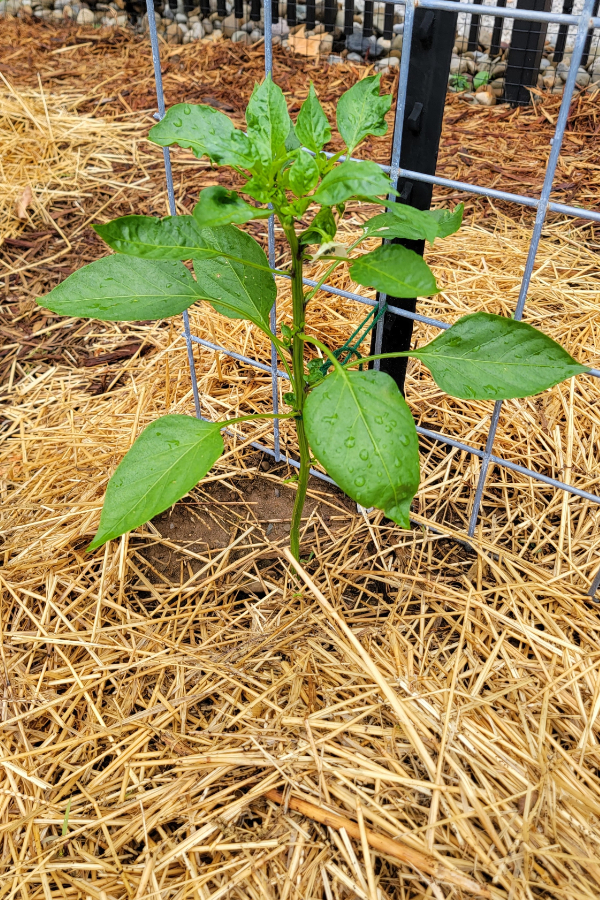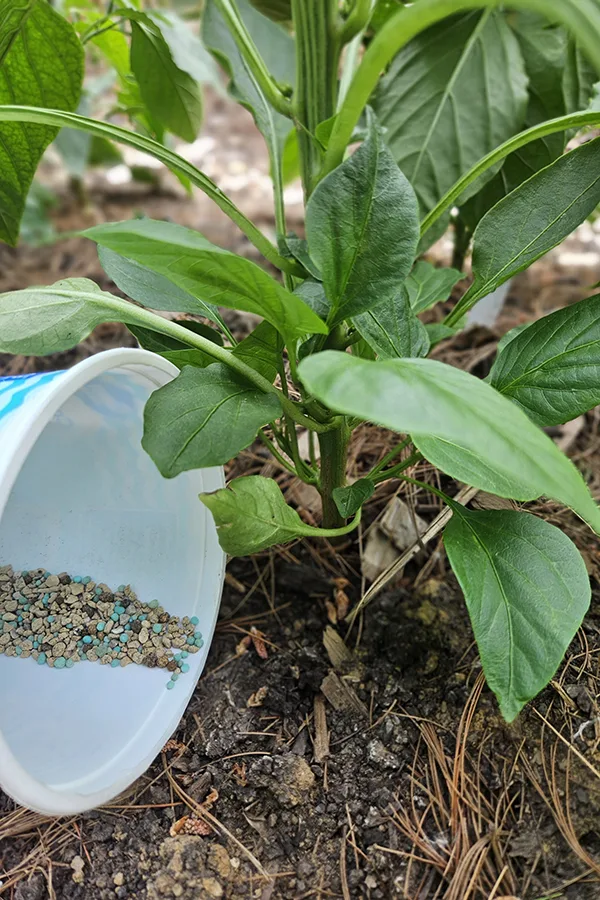Best Fertilizers for Peppers: Boost Development and Flavor Naturally
Best Fertilizers for Peppers: Boost Development and Flavor Naturally
Blog Article
Organic Vs. Synthetic Fertilizers: Which Is Best for Supporting Healthy And Balanced Pepper Plants?
In the world of supporting healthy pepper plants, the choice between organic and artificial fertilizers stands as an essential decision with significant effects. While both choices objective to supply crucial nutrients to sustain plant growth, the nuances of their effect on the soil, plant health, and the environment stimulate a dispute that mirrors throughout the horticulture area. Understanding the distinct advantages and potential challenges of each plant food kind is critical for pepper growers looking for to enhance their returns while keeping an eco-conscious and lasting technique.
Advantages of Organic Fertilizers
Organic fertilizers provide an environmentally-friendly and lasting method to nourishing pepper plants, providing vital nutrients without using artificial chemicals. These natural fertilizers are derived from organic sources such as compost, manure, bone dish, and seaweed, advertising dirt health and wellness and biodiversity. Unlike synthetic plant foods, organic choices release nutrients slowly, making sure a constant and balanced supply for pepper plants to grow.
One considerable benefit of organic plant foods is their capability to enhance dirt structure and water retention. By boosting soil health, natural plant foods promote advantageous microbial activity, which assists in nutrient uptake by pepper plants. Furthermore, natural fertilizers minimize the danger of chemical run-off, safeguarding water resources from contamination and securing the environment.
Furthermore, natural plant foods add to long-lasting dirt fertility by promoting the growth of valuable dirt microorganisms. These organisms help break down natural issue, releasing nutrients in a type that is easily accessible to pepper plants. best fertilizers for peppers. By cultivating a healthy and balanced soil ecological community, natural plant foods sustain lasting pepper farming methods that profit both plants and the environment
Drawbacks of Artificial Plant Foods
Synthetic fertilizers, in comparison to their organic equivalents, position various drawbacks when made use of to nourish pepper plants, influencing both plant health and environmental sustainability. One major downside of synthetic plant foods is their tendency to seep nutrients from the soil quickly.
Additionally, the overuse of synthetic plant foods can add to water contamination. Excess plant foods not soaked up by plants can remove into water bodies, leading to eutrophication, where algae flowers diminish oxygen degrees in the water, hurting aquatic life. Artificial fertilizers are normally derived from non-renewable sources, such as fossil fuels, adding to carbon emissions and environmental destruction during their manufacturing.
Nutrient Absorption Contrast
Effective nutrient absorption plays a vital duty in the general health and growth of pepper plants. When comparing synthetic and organic plant foods in terms of nutrient absorption, natural fertilizers have the advantage of giving a more balanced and slow-release resource of nutrients (best fertilizers for peppers). Organic plant foods have a variety of macro and micronutrients that are not just beneficial for the plants yet likewise advertise healthy and balanced soil microbial activity, which helps in nutrient uptake. On the various other hand, synthetic plant foods frequently supply a quick launch of nutrients, which can result in seeping and runoff, leading to reduced nutrient absorption prices by the plants.
Moreover, natural fertilizers boost soil framework and water retention capacity, allowing pepper plants to gain access to nutrients much more successfully. This better dirt top quality assists in origin advancement, enabling much better nutrient absorption. Synthetic plant foods, although initially enhancing plant development due to their high nutrient concentrations, might impede lasting nutrient absorption by derogatory dirt health in time.
Ecological Impact Factors To Consider

On the other hand, artificial fertilizers, although frequently more instantly readily available and concentrated to plants, can have damaging results on the environment if not used effectively (best fertilizers for peppers). Their production calls for high energy inputs, leading to greenhouse gas discharges and adding to climate change. The runoff of excess artificial fertilizers can contaminate water sources, leading to eutrophication and harming marine ecological communities.
Ideal Fertilizer Practices for Peppers
When fertilizing pepper plants, maximizing nutrient uptake and reducing environmental impact are essential factors to consider. To achieve this, it is vital to follow finest plant food methods tailored to the specific needs of pepper plants. One crucial method is to do a soil examination before using any type of fertilizers. This test can establish the pH degree of the soil and determine any kind of nutrient shortages, guiding you in selecting one of the most appropriate fertilizer solution.
An additional vital technique is to fertilize pepper plants at the correct time. Typically, peppers gain from receiving plant food at growing and after that again when they begin to flower. Over-fertilizing can bring about nutrient discrepancies and harm the plants, so it is vital to follow suggested application rates.
Additionally, choosing a read here balanced plant food with an NPK ratio that fits pepper plants' demands is fundamental. Organic fertilizers, such as garden compost or manure, can be excellent selections as they launch nutrients gradually and improve soil framework over time. Synthetic plant foods can offer a fast nutrient increase when required. Eventually, integrating synthetic and natural fertilizers deliberately can assist nurture healthy pepper plants while minimizing ecological effect.
Final Thought

Organic fertilizers supply a lasting and environmentally-friendly method to nourishing pepper plants, giving vital nutrients without the use of synthetic chemicals. Unlike artificial plant foods, organic options launch nutrients slowly, guaranteeing a well balanced and consistent supply for pepper plants to flourish.
Artificial plant foods, in comparison to their natural equivalents, pose various disadvantages when used to nurture pepper plants, impacting both plant wellness and environmental sustainability. When comparing synthetic and natural fertilizers in terms of nutrient absorption, natural plant foods have the benefit of supplying a much more balanced and slow-release source of nutrients.Additionally, organic plant foods improve dirt structure and water retention ability, permitting pepper plants to accessibility nutrients much more successfully.
Report this page